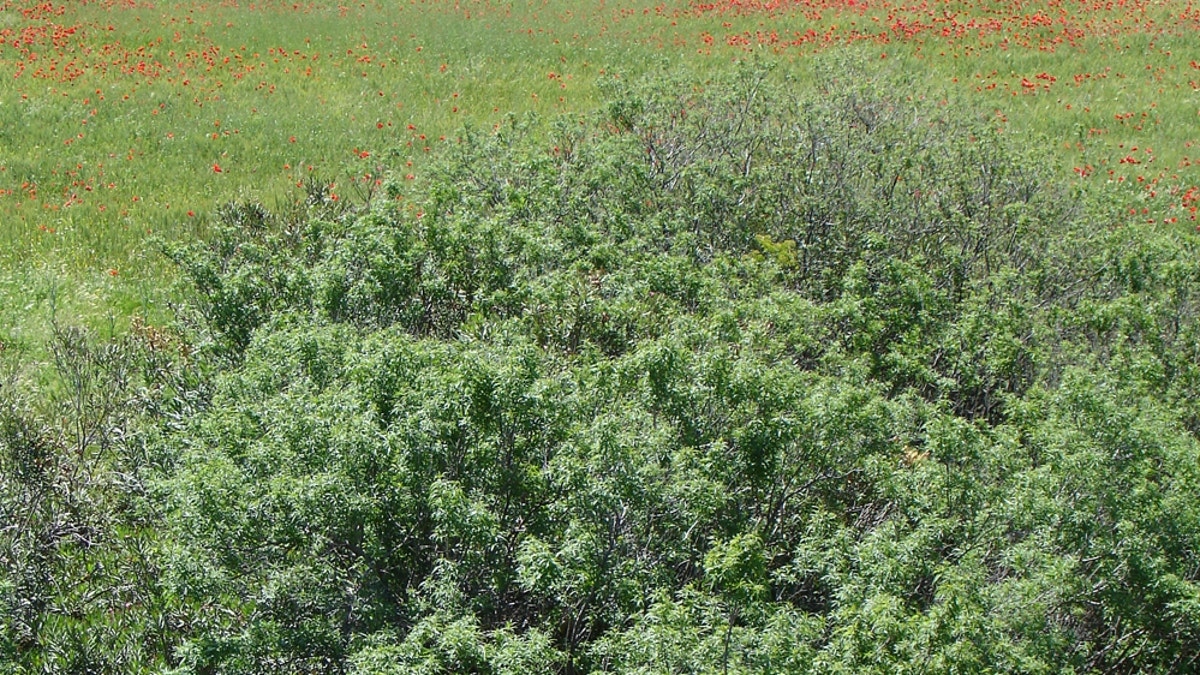
Despite pharmaceutical research expenditures totaling in the hundreds of millions of dollars, effective relief for symptoms of PMS has been confirmed not in an expensive patented drug, but in a traditional folk remedy, chaste berry (Vitex agnus castus). A study reported in the January 20 issue of the British Medical Journal found a positive rate of response of 52 percent among women with PMS. These results confirm what traditional herbalists have known all along, that chaste berry works for women.
Chaste berry, also known as vitex, is a densely branched shrub indigenous to the Mediterranean and Asia. The berries are used as a traditional folk medicine for premenstrual discomfort, and as a lactagogue, a promoter of breast milk production.
Chaste berry was well known to the early herbalists. Hippocrates commented "If blood flows from the womb, let the woman drink dark wine in which the leaves of the Vitex have been steeped.” Pliny the Elder said "The trees furnish medicines that promote urine and menstruation." The herb was widely used throughout Europe, and appeared in Homer's 6th. century B.C. epic, The Iliad.
Investigation into chaste berry has shown the presence of various flavonoids, and Yugoslavian chemists have suggested that the ripe fruits contain certain steroids. Chaste berry increases the production of luteinizing hormone, and inhibits the release of follicle-stimulating hormone. By this sex-hormone modifying action, chaste berry modifies the secretion of both estrogen and progesterone. This activity leads us to the issue of premenstrual syndrome, PMS.
Premenstrual syndrome is a complex combination of physical and psychological symptoms, which occur prior to the start of a menstrual period. These symptoms include fluid retention, bloating, breast tenderness, headache, irritability, aggression, tension, anxiety, depression, confusion, difficulty concentrating, and forgetfulness. Because of its complex physical and emotional expression, and because of the many factors which may contribute to its cause, PMS is hard to understand and difficult to treat. Symptoms of PMS occur a week or two prior to menstruation, and last anywhere from a few hours to 14 days. The intensity and range of symptoms differs from one woman to another. Often PMS comes on suddenly, resulting in sharp mood changes. Some women report dark mood changes, and an inability to control sudden overwhelming emotions.
The study of chaste berry and its effects on PMS reported in the British Medical Journal was conducted at the Institute for Health Care and Science, in Huttenberg, Germany. In the study, 170 women with a mean age of 36 participated. Of these, 86 were given a placebo, and 84 were given one tablet daily containing 20 milligrams of an extract of chaste berry (ZE 440) standardized to casticin. The women in the study participated for a period of three full menstrual cycles. The women in the study were assessed for six symptoms - irritability, mood alteration, anger, headache, bloating and breast fullness. The evaluation included a combination of self-rating tests, physical examinations and interviews. At the completion of the study, the group which had taken the chaste berry extract had a positive response rating of 52 percent, as compared with the placebo group at 24 percent. These results clearly show that chaste berry helps to relieve symptoms of PMS.
This is not the first study reporting positive results for PMS with chaste berry. Smaller studies reported last year in the Archives of Gynecology and Obstetrics, and in the Journal of Women’s Health and Gender Based Medicine reported similar findings. These studies showed that chaste berry offers relief for symptoms of PMS, with only a few reports of mild side effects.
Many questions remain about chaste berry for this purpose. What concentration of material will produce optimal results? What daily dosage will work best for the greatest number of women? Will other botanical or nutritional agents enhance the activity of chaste berry? Vitamin B6, for example, is well established in medical literature for providing some relief of some symptoms of PMS. Will these two agents together, and possibly others, result in a superior remedy for premenstrual syndrome?
We live in an interesting time in which traditional folk remedies with long histories of safe and effective use are being evaluated in a manner similar to that of drugs. In-depth chemical analysis of plant materials, along with various chemical and animal tests, set the stage for human clinical trials such as the ones I have described here.
We have seen positive reports on human clinical trials with kava, ginkgo, St. John’s wort, and other botanicals. As chemists and clinicians investigate traditional botanical remedies in their standardized, concentrated forms, the news is almost uniformly good news. Science does not “validate” chaste berry or any other herb. But it does explain how herbs work, and helps us to determine dosage levels that can offer reporducible results for a large number of people. In the case of chaste berry, standardized extracts of this common fruit, administered to women who experience the difficult symptoms of PMS, provide relief. Chaste berry is safe and effective.
Ultimately, this is what matters most.
Chris Kilham is a medicine hunter who researches natural remedies all over the world, from the Amazon to Siberia. He teaches ethnobotany at the University of Massachusetts Amherst, where he is Explorer In Residence. Chris advises herbal, cosmetic and pharmaceutical companies and is a regular guest on radio and TV programs worldwide. His field research is largely sponsored by Naturex of Avignon, France. Read more at www.MedicineHunter.com
Follow us on twitter.com/foxnewslatino
Like us at facebook.com/foxnewslatino








































